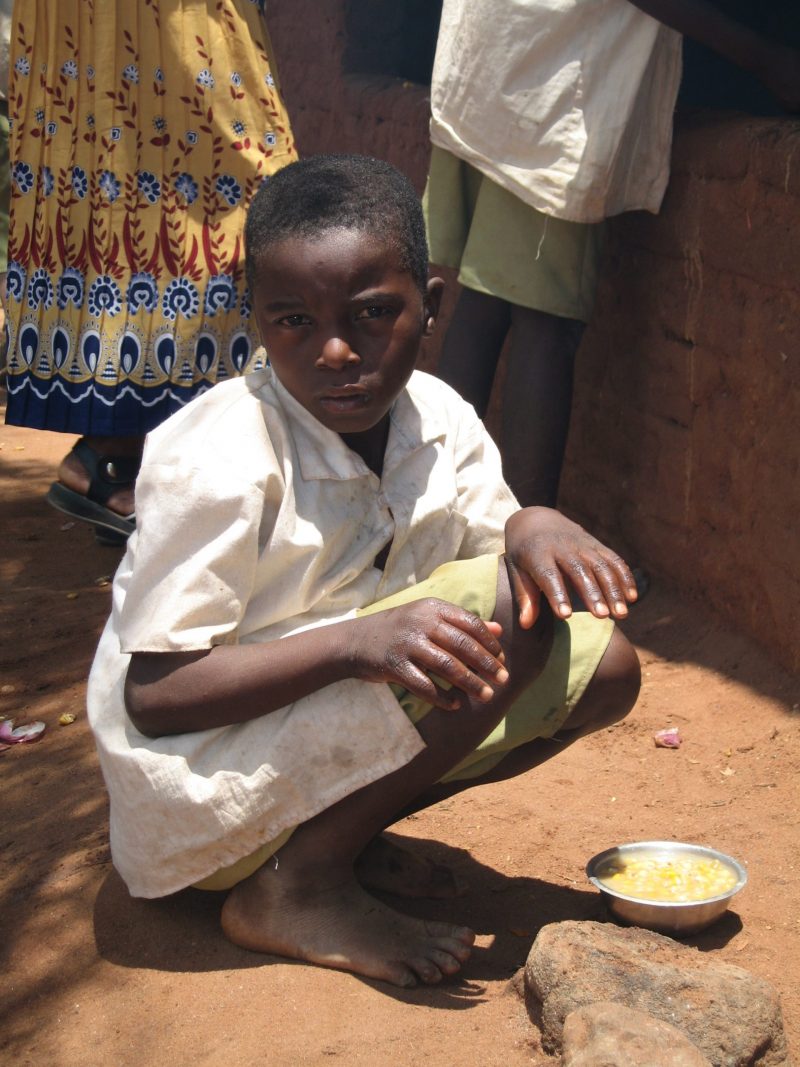![]()
* Friday February 3rd, 2006 *
This is our first day out in the fields and we are strongly requested at all times to bring along the Emergency kit as well as the survival kit. The emergency kit includes plaster, bandage, sterile compresses, sterile needles and sutures, Malaria prophylaxes, etc. The survival kit should include: 3 liters of water, Signals (such as whistle, mirror, torch, etc.), Anti-Diarrhea tablets, Aspirin, Compass, Shelter (such as clothes, umbrella, etc.), Condoms! Why Condoms? Well can be used for pleasure, but the main reason is that they are indeed excellent containers to use for water collection. At this point of time I did not know that I had to use this package later on due to issues faced!
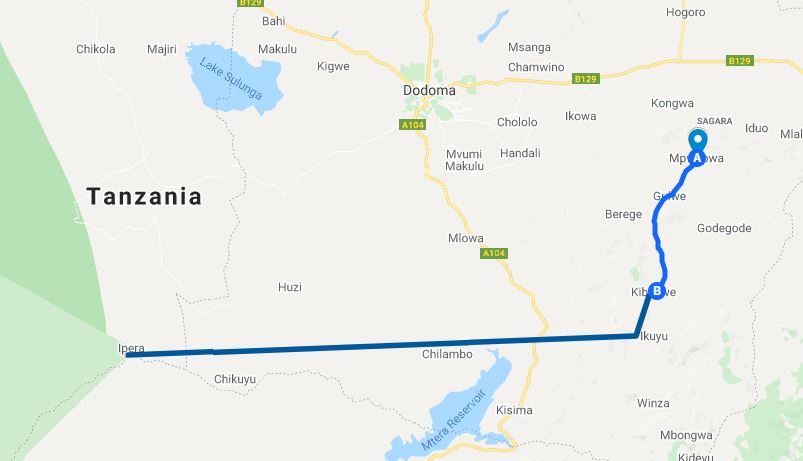
As soon as we leave the village and enter the road to Ipera, we find one of the food-trucks from WFP, which is stuck in the sand when passing a dried stream. They are trying to lift up the wheels by trying to put stones under the wheel. Here are several people who are helping the driver and his assistants.
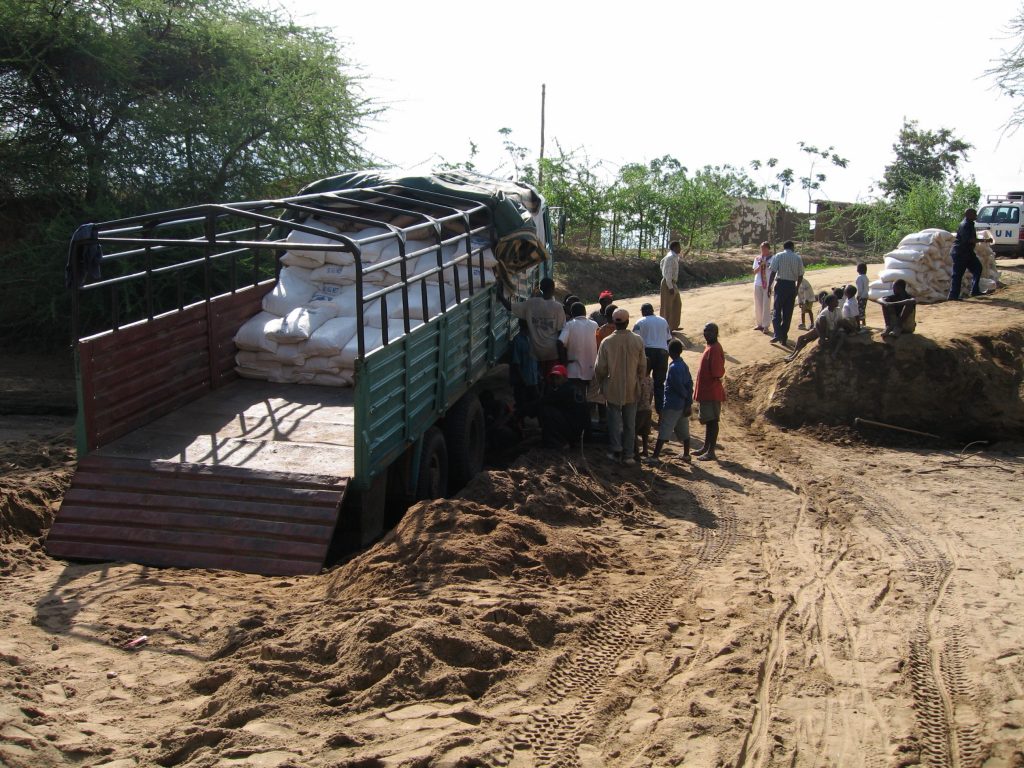
Kindly they have started to unload the truck from sacks with food and are really working hard. Roads is one of the problems WFP have when distributing the food to the schools as these are not in a good shape. Sometime you should be glad if there exist a road at all. They consist of sand or soil, stones, bumps and potholes.
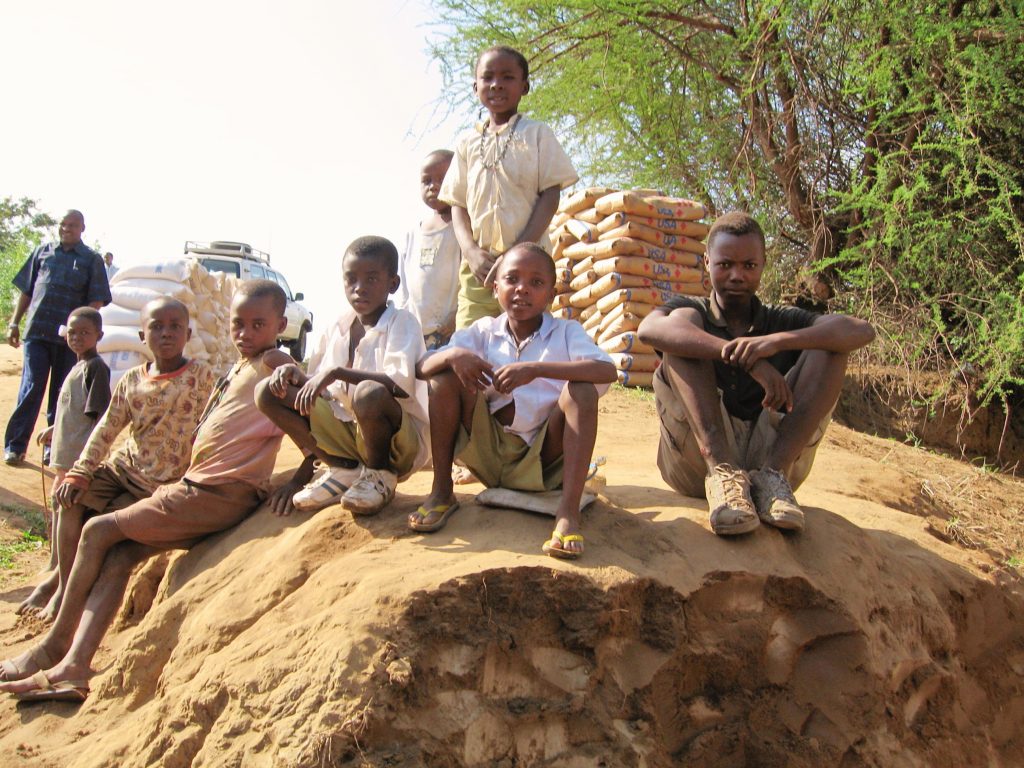
A ride on these roads needs a 4 wheel drive to manage all the problems. WFP and its driver’s are doing an excellent job under these difficult circumstances.

We are passing many small villages on our way to Ipera, the distance to go on these rough roads is 136 kilometers, and we are delivering a letter to the Primary School in Kibakwe during our journey. After a while we are passing a second truck from WFP who is carrying the cooking pots, maize, etc. Women are carrying water on top of their head, the bucket is quite big and the volume is approximately 20 liters. At the same time she is carrying a small child or a baby, sometimes hanging on her back.
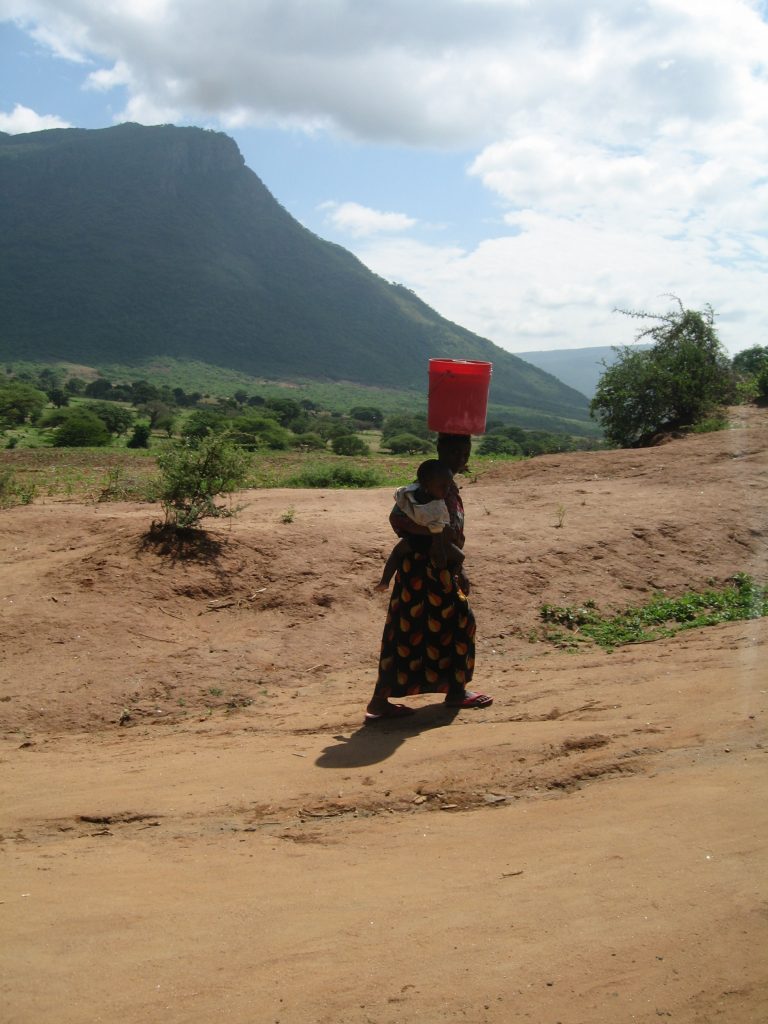
Women, men and children are often carrying a hoe, surely on the way to work in the fields, trying to get some seeds planted in the soil, in case the rain will start to fall. But so far, no rain has fallen for a long time. This is the season when the maize should have grown to a height of 50 centimeters, but most often nothing at all has grown. The situation has not been as bad as today since last 20 years according to officials.
We are driving in a valley between the mountains and in spite of the drought, the landscape are very beautiful. In general, Tanzania is really a beautiful country with its nature and the friendly people. The closer Ipera we come, the more worse gets the road, at one time the car is near to flip over side when getting through a difficult passage. (as always a click on the smaller pictures will enable you to see the "full" photo)

The activities to perform at Ipera are together with the NGO (non-government organization) MIGESADO to conduct seminar on use of fuel efficient stove and sanitation. One cook, one teacher, one artisan and one member of the local school community are called from several schools to attend this seminar. The attendants usually walk to the meetings and the longest distance one has to go this particular day is more than 20 kilometer. The bus in this area goes only once or twice a week. To have everybody in place to the start at 11:00 hours, they have been requested to be there at 08:00!!! When checking the lists we find attendants from the schools of Kikuyu, Mangaliza, Kilambo, Ipera, Nzugilo, Malolo and Idodoma. A total of 30 people which means 100% attendance, great!
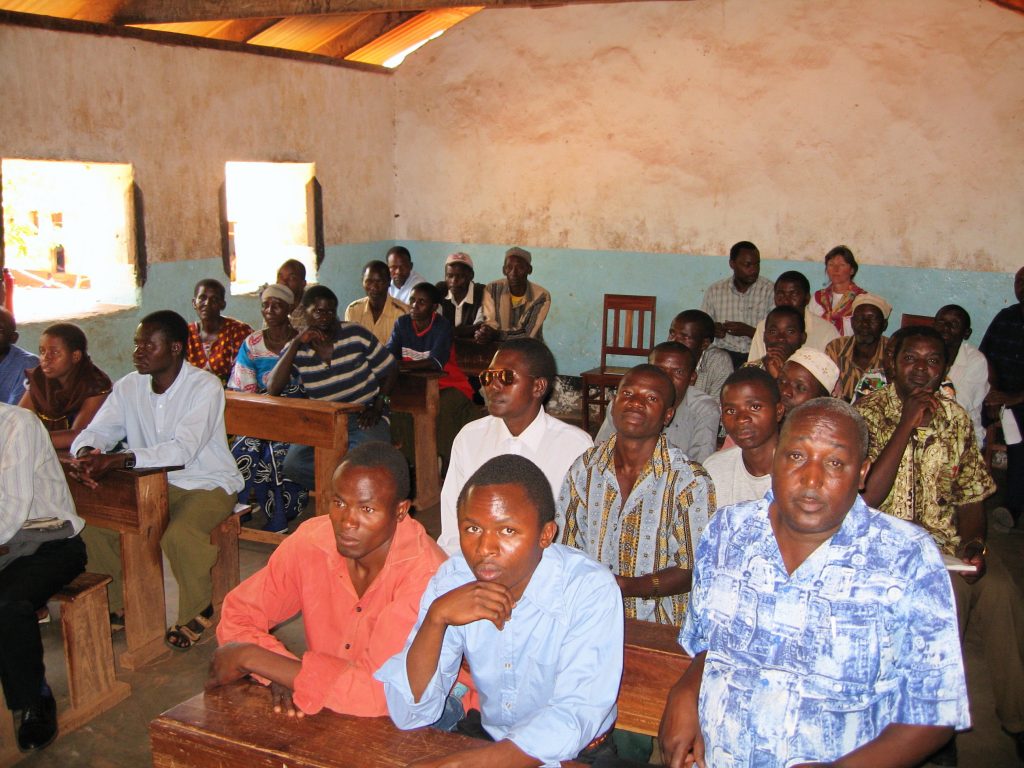
The seminar is opened by a member from the district council, there after Mr Willbroad, greets all the attendants and explaining why they are here. It is also explained to the audience the role of TNT when it concerns the School Feeding Project. They are informed that our company this year has donated USD 500.000 to the project. Also that TNT on top on this, are sending volunteers as us to work together with them, 3 times a year for 3 months each. Air tickets, salary, etc. are also paid by TNT.
To greet people are very important before starting a conversation, therefore all participants are introducing themselves, the volunteers included, and all in the language of Swahili. After the greetings, the education can start, James from MIGESADO are heading the course and are really a good teacher. By engaging all attendants, using questions, jokes, and in whole creating a very warm atmosphere, all attendants are listening very closely. They are asked about what positive effects the new stove will have, all the time engaging people to act.
James presents and show how a “good” and reliable Bantu-brick should look like, and then asks the artisans to go out and collect aggregates of their choice to use for brick making. All of them are putting the aggregates in a circle showing which school they represents. After this he shows what size to be preferred. And always repeats the important facts. When someone or something is excellent, the same will be greeted by hand clapping three times.
The “bell” rings and it is lunch time for the children. We leave the seminar to get a picture of how the procedure looks like. This school has 800 pupils and they are all coming out from their class rooms to get their meal. Everything proceeds under strict routines, the headmaster is standing there with a stick in his hand and watching them carefully and correcting pupils not behaving in a correct manner. Class by class is queuing up towards the “kitchen” and some pupils are doing their duty inside by giving a certain amount of food to each pupil.
This kitchen is still using their old stove, the traditional three stone stoves. These kitchens are not healthy at all, lots of smoke and the children, doing there duty, are forced to stand inside all the time during the lunch is being served. Even worse it is for the cook who is standing inside this smoky and hot area for hours when preparing the breakfast and lunch every day.

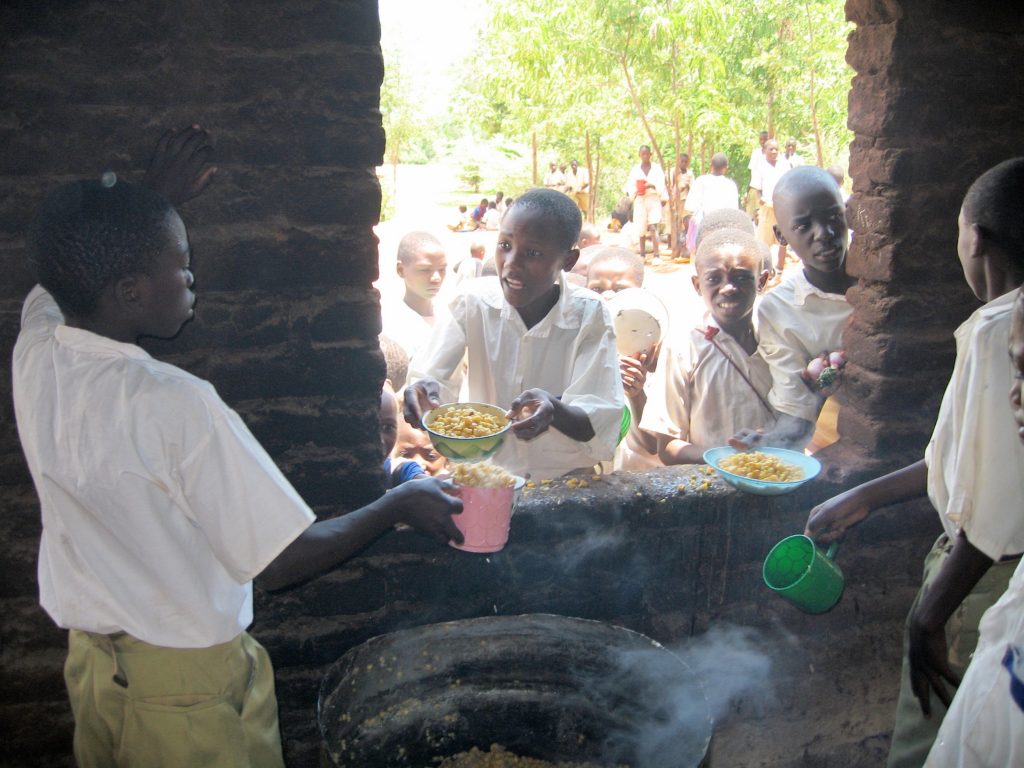
Being here as a “mzungo” is really interesting for the kids who not are used to meet white people, and everybody is curious and comes closer and closer. We greet them and start to shake hands with them and this spreads like a fire amongst the pupils. Suddenly you are surrounded by nearly 800 pupils as everybody wants to shake hand with you.

After the meal soome are collecting water from the water tank and they hide away from the sun under the trees.
Before starting a new lesson after having lunch, all pupils are supposed to attend a walk or rather a march. Everybody is lining up class by class and in front there are drummers. They start to walk class by class accompanied by the drums and they walk some kilometer alone without teachers, what a fantastic feeling hearing all the children singing when walking by.
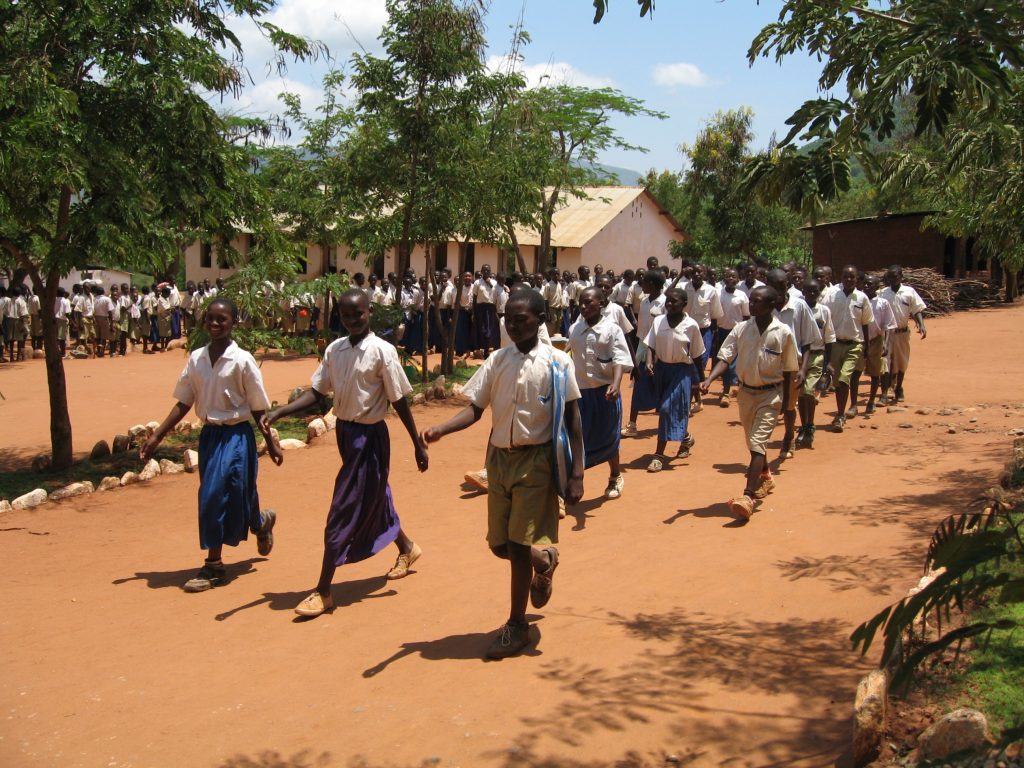
After a while you can not see them, but when standing there at the school yard, you can hear them far away. This really makes me shiver because when hearing the rhythm of the drums and the children singing I feel very happy and privileged to be able to be here on site.
While we have been looking at the school kitchen and taking photographs of the children, the seminar has ended and we are to be served some food. We are waiting outside for a while when the food was brought in. Before eating, everybody are washing there hands, this because of the fact that most of the people are eating with their (right) hand and so do we.
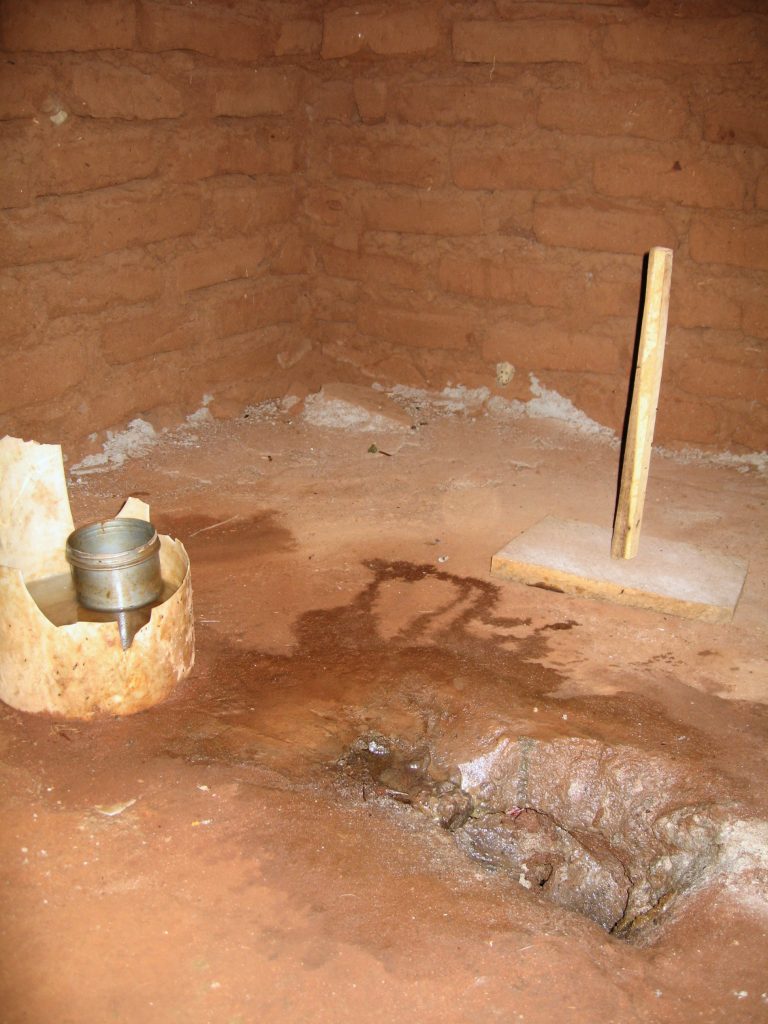
After the meal it is time to go back to our camp, and one of the teachers (on picture below) having a baby has a distance of 12 kilometers to go, so we offer her a lift. It would be un-human not to do it. When leaving the school, all of the children are standing at the side of the road and saying goodbye to us.
On the way back we find another WFP truck which had a flat tire, this was fixed by the driver and his assistants and we could pass them by driving in the ditch.

As told before, here are many bumps in the road and this time it is our vehicle which gets a problem (most probably by driving in the ditch). The driver gets out of the car and says after looking around, that we need to go to the garage in Dodoma tomorrow to repair. This will change our project plan, as we are supposed to visit Chogola Primary School to hold another seminar of how to handle the fuel-efficient stoves. But such is life here on the African continent, you should always be flexible, so now we say, “we shall flexibly stick to the plan” :-).
Again we also find people (always women and children) who have found a "water-hole" and bringing home water by carrying these 20-liters bucket on their head and it is very common that they have to go kilometer after kilometer.
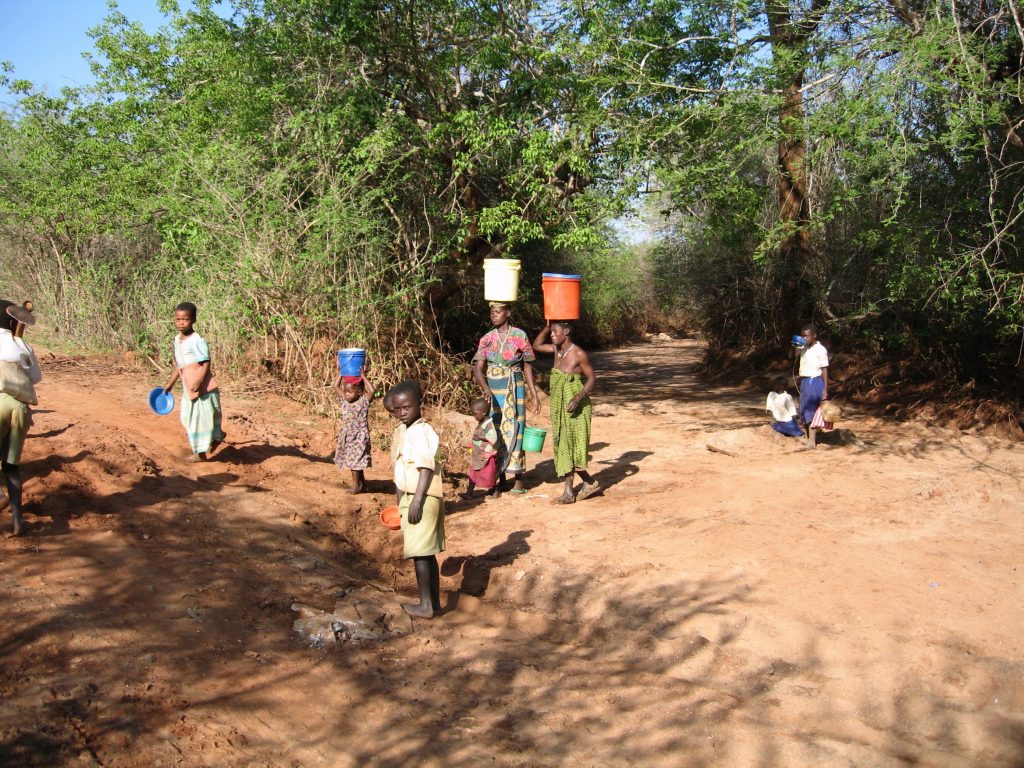
We return to Mpwapwa after a long day and our 2"mamas" at base-camp is taking good care of us and serving a good meal upon request.
Om du gillade inlägget så klicka på "gilla" ikonen som är en "tumme upp" här nedanför till vänster. Du får gärna kommentera eller fråga något genom att skriva en kommentar i kommentarsfältet nedanför.
